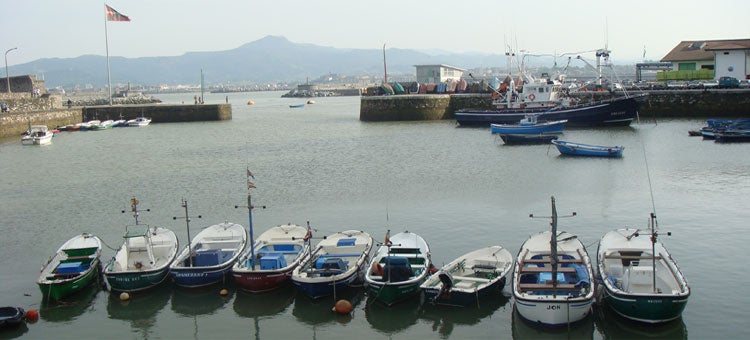Ulia-Jaizkibel: What Oceana Does

Oceana proposed the protection of a cross-border area between France and Spain including 27,304 marine hectares, if the almost 13,000 ha off Jaizkibel-Ulia were added. This would create one of the most diverse and important ecological corridors in the European Atlantic, including 50 protected species and a dozen communities and habitats of international interest distributed along 35 kms. It would also constitute an important contribution to the Natura 2000 Network in the Basque marine area.
Thanks to the work completed on board the Oceana Ranger research vessel in 2008, and to subsequent underwater work completed off the cliffs during the summer of 2010, a wealth of information has been collected about the region and roughly 1,000 different species have been documented, including protected species like the porpoise, bottlenose dolphins, eels, sea lampreys, groupers, common sponges, European lobsters, etc.
Oceana used this scientific information to compile a report titled “Protection of the marine area off Jaizkibel and Ulia, Euskadi”. This report was sent to various regional, national and international authorities.
In April 2010, Oceana announced its protection proposal for the marine area off Jaizkibel and Ulia in the Donostia Aquarium. In May 2010, Oceana presented the project to the Basque Parliament’s Environment, Planning, Agriculture and Fishery Commission in Vitoria. One month later, Oceana presented its proposal to the Marine Environment Development Commission of the Guipuzcoa Parliament.
Currently, the Oceana team is studying the Environmental Sustainability Report (ESR) of the Plan for Infrastructures of the Port of Pasaia, which includes the construction of a port off the cliffs of Jaizkibel that will occupy almost 99 marine hectares. The construction of these docks is incompatible with both Oceana’s proposal to create a marine protected area in the region, and the effective protection of the already designated SCI off the cliffs of Jaizkibel.
Oceana will present allegations against the ESR presented by the Pasaia Port Authority because, just as the report itself acknowledges, the construction of the port would significantly affect the Jaizkibel area.

